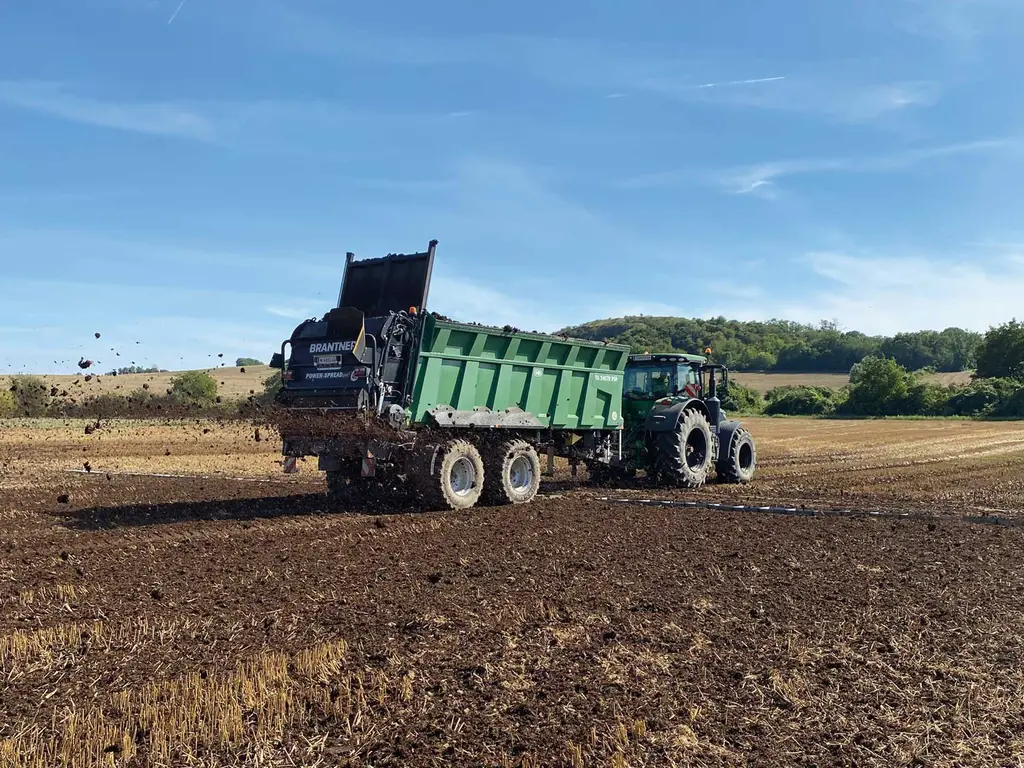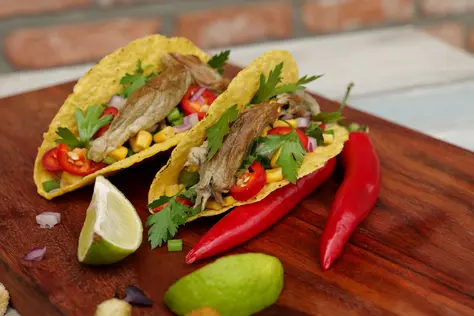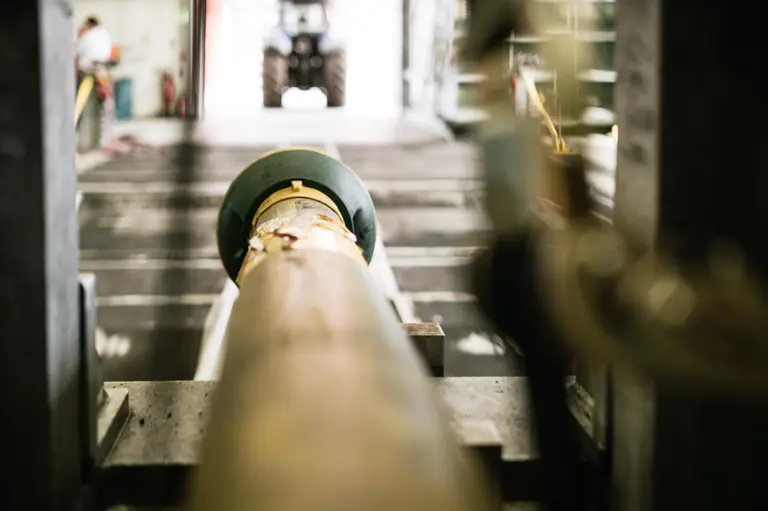EuroTier 2024: Speech by the Persident of the DLG Hubertus Paetow - We need a turnaround (Zeitenwende) in the agricultural sector
In his opening speech at EuroTier 2024, DLG President Hubertus Paetow called for a return to the reliable decision-making basis for entrepreneurial action with the guiding theme ‘We innovate animal farming’: global demand, technical progress and product innovation. EuroTier 2024, with its diverse, fascinating and forward-looking innovations, is exactly the right place for this.
[…]Ladies and Gentlemen[…],
I would like to extend a warm welcome here in Hanover to the world's leading trade fair for animal farming technology, to the big show of diverse, fascinating, forward-looking innovations from a diverse, fascinating and - yes - forward-looking sector of the economy. And even if there is a lot going on around us right now that could draw attention to other areas of life, I believe that we are all in exactly the right place here and now, and that we can all work together to help our societies move forward again.
The political upheavals in both the USA and Berlin are largely the result of people's concerns about the economic system that they see as the basis for their prosperity and which they realise is not developing as it could. This is true of the robust economy in the US - at least in people's perception - and it is particularly true here in Germany, where the challenges are far greater and where global interdependencies place far greater demands on companies' productivity and competitiveness. The order of the day is therefore to do everything in our power to promote progress in the economy, be it in politics, but also and above all in the various sectors of the economy.
Focus on news relevant to business
Because even if one might get a different impression in view of the public debate: Animal farming is and remains an economic sector that first and foremost follows economic principles. And as a player in such an industry, I have to base my strategic decisions on economically relevant developments and not on the course of public debate. These discussions may provide indications of future trends in demand. However, by no means everything that plays a role in the media and politics will also become economically relevant at some point.
To make a long story short: Over the next few days here in Hanover, you will see the innovations in animal farming that are relevant to business and that will further develop productivity and competitiveness. Experts agree that this progress will not be possible without improvements in animal welfare and environmental protection.
The decisive factor for trends and strategies in animal farming is therefore above all the development in global demand for animal products. And here the picture is quite clear: In the world's wealthiest countries, consumption of animal products is stagnating - although the volatility caused by the corona virus crisis makes it difficult to accurately analyse this trend.
Compromise reached on consumption of animal products
After a significant decline in the years of the pandemic, there are currently signs of a change of paradigm in nutrition. At the moment, there is much to suggest that demand for animal products will stabilise at a lower level. And this is entirely to be expected, as even affluent societies will not adopt a completely vegan diet in the foreseeable future.
We seem to have reached a level of consumption of animal products that consumers consider to be an acceptable compromise between enjoyment and ecological reason.
In the emerging markets - the most important group in terms of growth in consumption - there is still a steady increase in the consumption of animal products, and this will remain the case for some time to come. And this trend affects not only China, but also Pakistan, India and South America.
This trend is not only relevant for one of the world’s leading trade fairs, because production in these countries has to keep pace with demand.
In particular, the aspect of global trade, the global division of labour and the use of comparative location advantages - including with regard to the sustainability of production - is an important topic.
Meeting global demand sustainably
Many (in the bubbles of affluent societies) criticise animal farming in Germany and Europe, which, as they say, is also produced "for export". For me, this is an ill-conceived, misleading debate.
The FAO is forecasting a further increase in global meat consumption of 12 percent in the current decade.
This is the relevant figure for European animal production, because this global demand can only be met sustainably if sustainable animal production in Europe makes a significant contribution to it.
And this is in no way inconsistent with the sustainability strategies in food policy, as there is no reason why we should not eat less climate-damaging food in Europe while at the same time doing our share to ensure that consumers in other parts of the world can meet their demand for sustainably produced animal products. A politically imposed linking of animal production to national demand, on the other hand, means nothing other than protectionism and renationalisation of the economy.
Differentiated consideration of the climate footprint
Another important issue, both in society and at this exhibition, is the influence of animal farming on climate change. The popular blanket condemnation of animal production in the sense of "animal farming harms the climate" and even more so the irrational reverse conclusion that "not using animal products is climate protection" ignore the scientific evidence. On the contrary, nutrition must be aligned with the climate footprint of individual foods.
And here the picture is much more differentiated than it appears at first glance. This is about the considerable differences in emissions between animal species, about the positive contribution of utilised grassland and about emissions during processing, which also play a role in plant-based foods.
For example, the greenhouse gas balance of a chicken raised in a German barn can be just as good as that of a substitute product made from imported seitan.
Improving the climate impact of our food is not achieved by hindering production, but through a food policy that makes the climate impact measurable and transparent and, based on this, sets effective incentives on the part of consumers.
Developing sustainability assessment in the industry
A basis for such a nutrition policy is already laid in the current regulatory activities on sustainability reporting as part of the various supply chain laws and mandatory sustainability reporting. Even if the regulators in Brussels and Berlin are currently doing their best to thoroughly muck up this approach, which is in itself expedient, this development will continue and we would do well to adapt to it in the corporate world.
The data basis for these systems must be as simple and efficient as possible, and it is no help to anyone if bureaucracy also creates a playground in this area.
We need to develop and test viable systems for corporate climate assessment within the industry as quickly as possible. Otherwise others will do it, and we can see where this leads with the regulations on sustainability reporting in large companies. Let's use the next few days to discuss this topic as well - a world-leading trade fair is also the right place for this.
Investments as the fuel for growth
Investments are the fuel of economic growth. The operating results in animal farming have currently been very good in all areas, and by that I mean the last two years, and the outlook is also very positive - at least for milk and poultry.
However: Despite the good liquidity and the apparent competitiveness, we see little investment in animal farming facilities, at least in Germany. Neither in more animal welfare nor in an expansion of capacity. As a result, the German Association of the Dairy Industry complains that, despite historically high raw material prices, the supply volume is not sufficient to meet the rising demand for dairy products.
And this is an alarm signal that should give us all pause for thought, indeed, it makes it necessary for us to take the initiative from within the industry.
We need to overcome this toxic mood, these doubts, especially among young people, about the future of the animal production business model as quickly as possible. And this is a task for society as a whole - this is where politics can make itself useful and achieve a great deal with inexpensive positive messages.
Positive messages instead of contradictory signals
The models for these messages are on the table.
Behind us lies a phase of intensive and, for the most part, successfully concluded discourse on the future of agriculture and animal farming. Stakeholder dialogues such as Borchert and ZKL have produced viable results and shown how social requirements and economic reality can be reconciled.
However, the ‘end’ for Borchert and the unwillingness of politicians to finance the socially demanded reorganisation of animal farming sends exactly the wrong signal: We as a society are probably not that serious about restructuring animal farming as to expect consumers to pay 2 to 3 percent more VAT on animal products. Retailers are also outdoing themselves in their announcements, but less so in their purchase prices for animal welfare products.
Business investment strategies cannot be built on such contradictory signals from politics and the market.
Turning point in the agricultural sector as well
I believe that it is time for companies and politicians to return to the reliable basis for entrepreneurial decisions - global demand, technical progress and product innovation. We also need a turnaround in the agricultural sector. Sustainable food systems without animal farming are conceivable, but pointless. A re-education of humanity towards a vegan diet is neither scientifically necessary nor socially required. And if there is to be animal husbandry in the future, then please make it modern, efficient and economically successful. And you've all come to the right place for that.
The fact that progress, innovative spirit and sustainability belong together is not only demonstrated by the diverse solutions for animal husbandry that we will be able to experience here in Hanover in the coming days. EnergyDecentral, the industry meeting place for the international renewable energy sector, also illustrates this in a special way. The focus here is on solutions from the field of decentralised energy generation, from biogas to solar energy and wind power through to smart energy. Renewable energies, agriculture and animal farming together form a circular economy. Sustainable solutions for a viable agricultural and food system of tomorrow are the focus of the Inhouse Farming - Feed & Food Show with a diverse programme on topics of the future such as aquaculture, insect farming and controlled environment agriculture.
New record for country pavilions
EuroTier 2024 with the guiding theme "We innovate animal farming" is a real trailblazing trade fair. More than 2,200 exhibitors will be showcasing their solutions here in the coming days. That's a significant increase compared to 2022. EuroTier is the world's leading trade fair for professional animal farming and livestock management: Around 65 percent of exhibitors come to Hanover from abroad. We also have 25 country pavilions this year, which is a new record. It is also encouraging that almost 40 start-ups from 16 countries will be presenting their innovative concepts at EuroTier.
I would like to take this opportunity to thank the team around EuroTier Project Manager Ines Rathke and all those involved within the DLG who have worked tirelessly to organise such an impressive and inspiring trade fair!
Ladies and gentlemen, dear exhibitors, dear politicians: I wish you an exciting EuroTier with many interesting discussions and exchanges with animal farming professionals from all over the world. The diverse programme of more than 500 events and the specialist events addresses the topics that are important for the future of our industry.
Ladies and gentlemen, dear exhibitors, I wish you a pleasant evening with stimulating discussions and an exciting EuroTier 2024.
Images may be used freely provided the photo credit is given: DLG / S. Pförtner
PressRelease_EuroTier2024_Speech_HPaetow_EN.pdfOpening_Event_EuroTier1.JPG
OpeningEvent_EuroTier2.jpg









